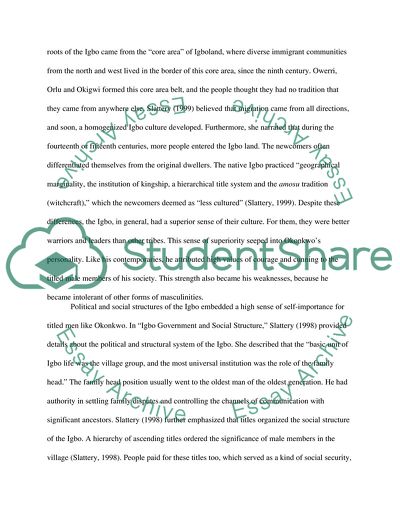Cite this document
(“Psychology of Okonkwo in Things Fall Apart by Chinua Achebe Essay - 1”, n.d.)
Retrieved de https://studentshare.org/literature/1596079-psychology-of-okonkwo-in-things-fall-apart-by-chinua-achebe
Retrieved de https://studentshare.org/literature/1596079-psychology-of-okonkwo-in-things-fall-apart-by-chinua-achebe
(Psychology of Okonkwo in Things Fall Apart by Chinua Achebe Essay - 1)
https://studentshare.org/literature/1596079-psychology-of-okonkwo-in-things-fall-apart-by-chinua-achebe.
https://studentshare.org/literature/1596079-psychology-of-okonkwo-in-things-fall-apart-by-chinua-achebe.
“Psychology of Okonkwo in Things Fall Apart by Chinua Achebe Essay - 1”, n.d. https://studentshare.org/literature/1596079-psychology-of-okonkwo-in-things-fall-apart-by-chinua-achebe.


